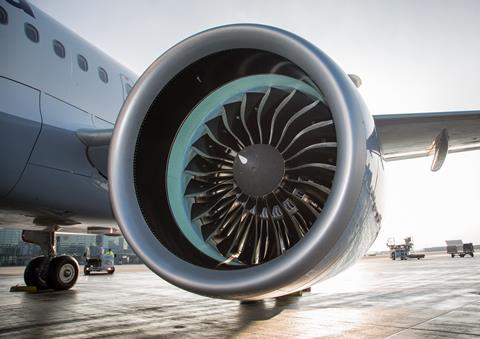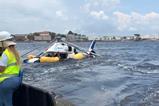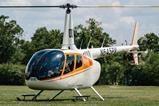Pratt & Whitney expects the peak number of aircraft grounded as a result of manufacturing problems with geared turbofan engines will be lower than previously anticipated as the propulsion specialist continues to work through the issue.
In September, the engine maker expanded a previously announced requirement for “accelerated inspections” of the PW1100G engines that power Airbus A320neo-family jets due to a manufacturing problem.

Caused by contamination of the powder metal material used to make high-pressure turbine and compressor disks, the issue will see thousands of aircraft taken out of service over the next two years for checks.
But speaking to analysts on a full-year earnings call on 23 January, Christopher Calio, chief operating officer of P&W parent RTX, said although the recovery process was in its early stages, progress is being made.
While it is sticking to its overall forecast of an average of 350 aircraft on ground (AOG) each month, Calio expects “a lower peak level than previously anticipated”.
That high point will still likely occur in the first quarter of 2024 “and then trend downwards”.
Calio says the flatter AOG profile is due to delays in the finalisation of an airworthiness directive by the US Federal Aviation Administration, which he expects will now be issued “in the next month or so”.
In addition, “proactive fleet planning” by airlines has also contributed, he says.
All engines being delivered to the OEMs, principally Airbus, are to the latest build standard, offering “the maximum time on wing”.
P&W also sees “solid progress” in the production ramp-up of new compressor and turbine disks to feed into the MRO network for installation “during certain shop visits”.
The number of engines receiving full-life discs during MRO “will increase throughout the year as we continue to ramp up production of these parts”, Calio says.
Other tweaks within the MRO system are additionally being implemented to reduce the disruption to customers, adds Calio.
However, he admits that some airlines “are going to be more affected than others”. As a result, P&W is “working very hard to come up with a compensation structure” that best reflects the level of disruption experienced.
Sales at P&W slipped by 11% in 2023 to $18.2 billion, down from $20.5 billion the previous year. Reflecting charges related to the powder metal issue, the engine maker slid to a S1.45 billion operating loss against an operating profit of $1 billion in 2022.
P&W expects large engine deliveries to rise by 20% in 2024 as Airbus ramps output of A320neo-familiy jets.
Meanwhile, sales at sister company Collins Aerospace climbed to $26.2 billion, up 14% on the $23 billion recorded a year earlier. Operating profit rose by 36% to $3.8 billion from $2.8 billion in 2022.
Fellow RTX business Raytheon saw sales tick up 5% to $26.3 billion against $25.1 billion in 2022, although operating profit fell slightly, by 3%, to $2.3 billion from $2.4 billion a year earlier.































